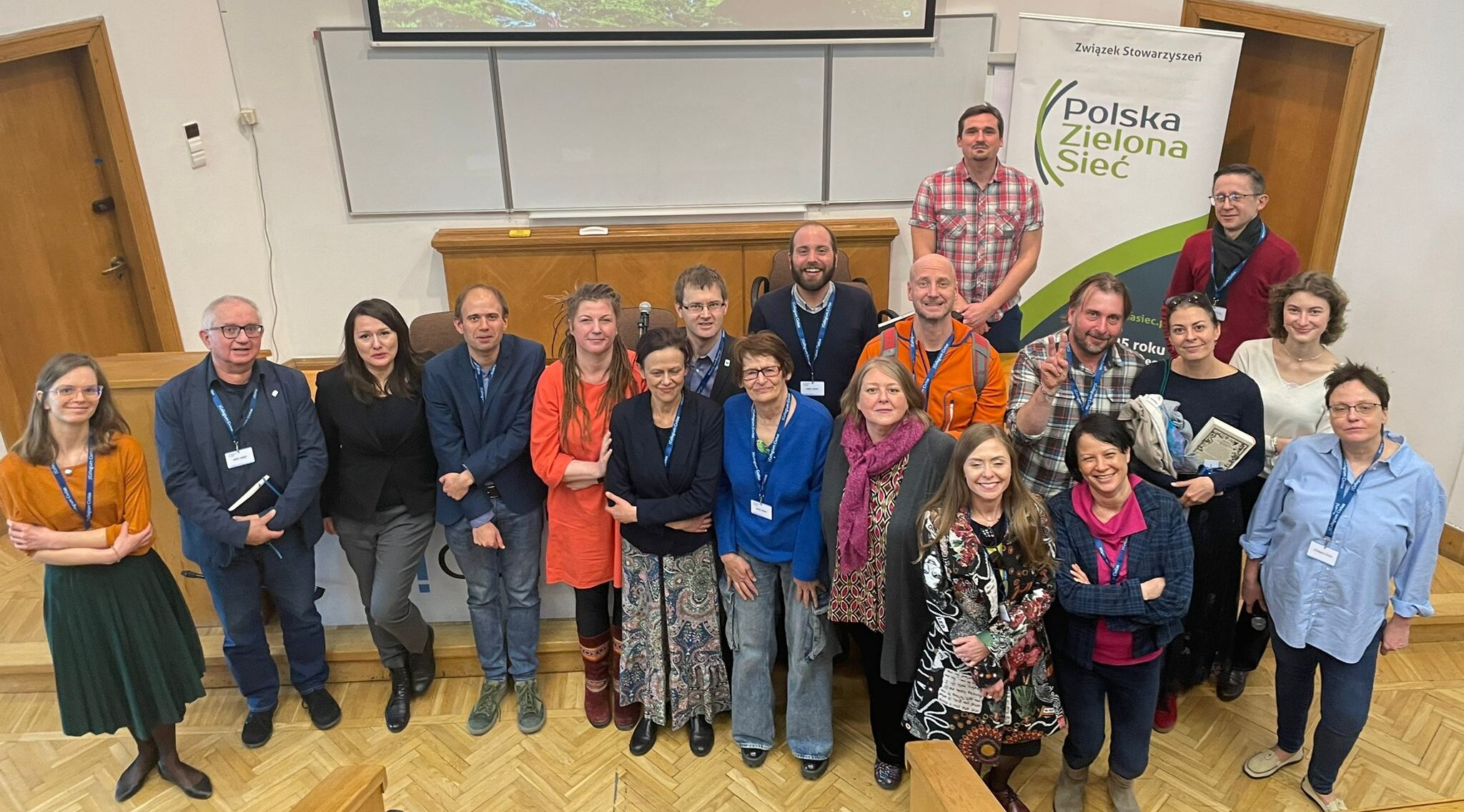
On the first day of spring, 21 March 2024, at the Collegium Civitas University in Warsaw, the Polish Green Network organised a debate on EU environmental policy. Our debate was set against the backdrop of the current turbulent events surrounding nature conservation in the context of farming. Still, its overarching aim was to interest the gathered audience in what the implementation of this policy looks like at the EU level and how it translates into decisions felt by all European societies.
In opening the debate, PGN´s President drew attention to this fact while also appealing to the audience to follow political action at the EU level and to take an informed part in the upcoming European Parliament elections in June this year. To this end, we also invited the event’s participants to use the electoral compass available on our website and the manifesto developed together with partners of the Citizens` Observatory for Green Deal Financing project.
EU environmental policy delivers on global commitments
Three experts we invited provided a substantive introduction to the debate itself. A representative from the European Commission Representation in Poland first pointed out that ‘the EU’s environmental policy is the implementation of global commitments’ (Kunming and Montreal Declaration of 2022). Its main framework is outlined by the Biodiversity Strategy, which in the 2030 time horizon envisages the protection of 30% of the EU’s land and seas, the development of organic agriculture, the reduction of pesticide use, halting the extinction of pollinators, the planting of trees and the restoration of rivers. Concrete provisions in this regard are to be introduced in the 2022 draft. The ‘Nature Restoration Law’ is expected to be finalised by March of this year, around which a political and media storm has recently erupted in many countries (including Poland). A WWF expert provided a substantive introduction to the knowledge of biodiversity itself. As it turns out, according to analyses by the European Environment Agency, only 15% of natural habitats in the EU are adequately protected (for Poland, the level is set at 20%). Scientists recognise that biodiversity (intra-species, interspecies and ecosystem) is declining faster than ever in human history. This knowledge provides a critical context for EU legislation and political decisions on its introduction. The substantive introduction to the discussion was complemented by a presentation by an expert from the Wetlands Conservation Centre of the UW Biology Department, who explained what wetlands/peatlands are and why they must be protected and restored.
Debate between panelists and assembled guests
The central part of the event, however, was the debate between the panelists and the assembled guests. We had 79 participants – students and staff from Collegium Civitas, activists, and experts. The discussion was lively and, understandably, related to the confusion around the Nature Restoration Law, which will soon be voted on in the EU Council. Participants pointed out that the measure had fallen victim to pressure from various interest groups (farmers, foresters, ranchers and even hunters) and, despite a very large softening of its provisions in the European Parliament, adopting the Act is still highly uncertain. The stance of the Prime Minister of the Polish government, who, under pressure from agricultural protests, announced a vote against the adoption of the Law, was met with anger and criticism by most of those participating in the discussion. However, discussants looked for broader reasons for this state of affairs, pointing to issues of lack of involvement and knowledge on the part of the majority of citizens, ineffective communication on the part of EU bodies, or the role of the media, which sometimes gets lost in the factual layer, and sometimes serves as a tool for the influence of certain circles and social groups. Attention was also drawn to the political context, not only national, but above all, the EU and the prospect of what the newly elected European Parliament and Commission will do in this area.
The intensity of the debate and the fact that we had to conclude it due to the timeframe of the event show that many citizens want to increase their knowledge and awareness on topics which, on one hand, affect their lives and, on the other hand, they are the ones who can influence the course of things by participating and deciding in elections. This is a conclusion and a recommendation for both PGN and other community organisations to reach out as widely as possible with information and, as often as possible, to build platforms for exchanging knowledge and discussing various participants in public life.

